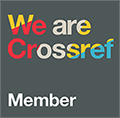Elektrik Konusunda İçerik Bilgisi ile Kişisel Pedagojik Alan Bilgisi arasındaki Bağlantılar
DOI:
https://doi.org/10.33308/26674874.2025393961Anahtar Kelimeler:
Alan Bilgisi- Elektrik- Kişisel Pedagojik Alan BilgisiÖzet
Bu çalışma sınıf öğretmenliği öğretmen adaylarının elektrik konusundaki seri ve paralel bağlama hakkındaki içerik bilgisini, kişisel pedagojik alan bilgisini (kPAB) ve öğretmen adaylarının bu iki bilgi türü arasındaki bağlantılarını araştırmaktadır. Araştırmada Magnusson modeli, PAB haritalama yaklaşımı ve Geliştirilmiş Uzlaşı model kavramsal çerçeve olarak kullanılmıştır. Çalışmaya bir özel üniversitede öğretim gören 26 sınıf öğretmenliği 3. sınıf öğrencisi katılmıştır. Çalışmada kolay ulaşılabilir örnekleme yöntemi seçilmiş ve veriler iki açık uçlu soru ile toplanmıştır. İçerik bilgisi analizinde tümevarımsal kodlama, kPAB analizinde PAB haritalama yaklaşımı kullanılmıştır. Bu iki analiz sonucunun karşılaştırılmasıyla içerik bilgisi ve kPAB arasındaki bağlantılar ortaya konmuştur. Sonuçlar 3 farklı bilgi alanını ortaya koymaktadır. Bu bilgi alanları; kişisel PAB, genel pedagoji bilgisi ve sahte PAB’dır. İçerik bilgisi ve PAB analizlerinin karşılaştırılması sonucunda, sadece konuyu bilen öğretmen adaylarının kaliteli öğretimle ilişkilendirilen kişisel PAB’ı ders planlarına yansıttıkları görülmüştür. Öte yandan konuyla ilgili sınırlı bilgisi olan adaylar ders planlarında içerik bilgisini ihmal eden genel pedagoji bilgisini veya yanlış içerik bilgisinin öğretimine odaklanan sahte-PAB’ı kullanmışlardır. Bu sonuçlar PAB ve içerik alan bilgisi arasındaki karmaşık ilişkinin anlaşılmasına yardımcı olabilir.
İndirmeler
Referanslar
Alonzo, A. C., Berry, A., & Nilsson, P. (2019). Unpacking the complexity of science teachers’ PCK in action: Enacted and personal PCK. In A. Hume, R. Cooper, & A. Borowski (Eds.), Repositioning pedagogical content knowledge in teachers’ knowledge for teaching science (pp. 271–286). Springer. DOI: https://doi.org/10.1007/978-981-13-5898-2_12
Aydın, S., & Boz, Y. (2012). Review of studies related to pedagogical content knowledge in the context of science teacher education: Turkish case. Educational Sciences: Theory and Practice, 12(1), 497-505.
Aydın, S., Boz, N., & Boz, Y. (2010). Factors that are influential in pre-service chemistry teachers’ choices of instructional strategies in the context of methods of separation of mixtures: A case study. The Asia-Pacific Education Researcher, 19(2), 251-270. DOI: https://doi.org/10.3860/taper.v19i2.1595
Ayvacı, H. Ş., Bebek, G., & Yamaçlı, S. (2023). Comparison of the theoretical and practical knowledge of the pre-service science teachers in Turkey: The context of simple electrical circuits. Participatory Educational Research, 10(3), 130-149. DOI: https://doi.org/10.17275/per.23.48.10.3
Barendsen, E., & Henze, I. (2019). Relating teacher PCK and teacher practice using classroom observation. Research in Science Education, 49(5), 1141-1175. DOI: https://doi.org/10.1007/s11165-017-9637-z
Bartos, S.A., Lederman, N.G., & Lederman, J.S. (2014). Teachers’ reflections on their subject matter knowledge structures and their influence on classroom practice. School Science & Maths, 114(3), 125-138. DOI: https://doi.org/10.1111/ssm.12058
Boz, N., & Boz, Y. (2008). A qualitative case study of prospective chemistry teachers’ knowledge about instructional strategies: introducing particulate theory. Journal of Science Teacher Education, 19, 135-156. DOI: https://doi.org/10.1007/s10972-007-9087-y
Bravo, P., & Cofré, H. (2016). Developing biology teachers’ pedagogical content knowledge through learning study: the case of teaching human evolution. International Journal of Science Education, 38(16), 2500-2527. DOI: https://doi.org/10.1080/09500693.2016.1249983
Canbazoğlu, S., Demirelli, H., & Kavak, N. (2010). Investigation of the relationship between pre-service science teachers’ subject matter knowledge and pedagogical content knowledge regarding the particulate nature of matter. Elementary Education Online, 9(1), 275-291.
Carlson, J., & Daehler, K.R. (2019). The refined consensus model of pedagogical content knowledge in science education. In Hume, A., Cooper, R., & Borowski, A. (Eds.), Repositioning pedagogical content knowledge in teachers’ knowledge for teaching science (pp. 77-92). Springer. DOI: https://doi.org/10.1007/978-981-13-5898-2_2
Carpendale, J., & Hume, A. (2019). Investigating practising science teachers’ pPCK and ePCK development as a result of collaborative CoRe design. In A. Hume, R. Cooper, & A. Borowski (Eds.), Repositioning pedagogical content knowledge in teachers’ knowledge for teaching science, (pp. 225-252). Springer. DOI: https://doi.org/10.1007/978-981-13-5898-2_10
Chan, K. K. H. (2022). A critical review of studies using the pedagogical content knowledge map approach. International Journal of Science Education, 44(3), 487-513. DOI: https://doi.org/10.1080/09500693.2022.2035011
Chan, K. K. H., & Hume, A. (2019). Towards a consensus model: Literature review of how science teachers’ pedagogical content knowledge is investigated in empirical studies. In A. Hume, R. Cooper, & A. Borowski (Eds.), Repositioning pedagogical content knowledge in teachers’ knowledge for teaching science, (pp. 3-76). Springer. DOI: https://doi.org/10.1007/978-981-13-5898-2_1
Coe, R., Aloisi, C., Higgins, S., & Major, L. E. (2014). What makes great teaching? Review of the underpinning research. https://www.suttontrust.com/wp-content/uploads/2014/10/What-Makes-Great-Teaching-REPORT.pdf
de Jong, O. & van Driel, J. (2004). Exploring the development of student teachers’ pck of the multiple meanings of chemistry topics. International Journal of Science and Mathematics Education, 2, 477-491. DOI: https://doi.org/10.1007/s10763-004-4197-x
Demirdöğen, B., Hanuscin, D. L., Uzuntiryaki-Kondakci, E., & Köseoğlu, F. (2016). Development and nature of preservice chemistry teachers’ pedagogical content knowledge for nature of science. Research in Science Education, 46, 575-612. DOI: https://doi.org/10.1007/s11165-015-9472-z
Gess-Newsome, J. (2015). A model of teacher professional knowledge and skill including PCK: Results of the thinking from the PCK Summit. In Berry, A., Friedrichsen, P., & Loughran, J. (Eds.), Re-examining pedagogical content knowledge in science education (pp. 38-52). Routledge. DOI: https://doi.org/10.4324/9781315735665-8
Henze, I., & van Driel, J. H. (2015). Toward a more comprehensive way to capture PCK in its complexity. In Berry, A., Friedrichsen, P., & Loughran, J. (Eds.), Re-examining pedagogical content knowledge in science education (pp. 120-134). Routledge.
Irmer, M., Traub, D., Böhm, M., Förtsch, C., & Neuhaus, B. J. (2023). Using video-based simulations to foster pPCK/ePCK—new thoughts on the refined consensus model of PCK. Education Sciences, 13(3), 261. DOI: https://doi.org/10.3390/educsci13030261
Kapyla, M., Heikkenen, J., & Asunta, T. (2009). The influence of content knowledge on pedagogical content knowledge a case of teaching photosynthesis and plant growth. International Journal of Science Education, 31(10), 1395 - 1415. DOI: https://doi.org/10.1080/09500690802082168
Kaya, O. N. (2009). The nature of relationships among the components of pedagogical content knowledge of preservice science teachers: ‘Ozone layer depletion’ as an example. International Journal of Science Education, 31(7), 961-988. DOI: https://doi.org/10.1080/09500690801911326
Kind, V. (2009). A conflict in your head: An exploration of trainee science teachers’ subject matter knowledge development and its impact on teacher self confidence. International Journal of Science Education, 31(11), 1529–1562. DOI: https://doi.org/10.1080/09500690802226062
Kirschner, S., Borowski, A., Fischer, H. E., Gess-Newsome, J., & von Aufschnaiter, C. (2016). Developing and evaluating a paper-and-pencil test to assess components of physics teachers’ pedagogical content knowledge. International Journal of Science Education, 38(8), 1343-1372. DOI: https://doi.org/10.1080/09500693.2016.1190479
Lederman, N. G. & Gess-Newsome, J. (1992). Do subject matter knowledge, pedagogical knowledge, and pedagogical content knowledge constitute the ideal gas law of science teaching? Journal of Science Teacher Education, 3(1), 16-20. DOI: https://doi.org/10.1007/BF02614732
Magnusson, S. J., Borko, H., & Krajcik, J. S. (1999). Nature, source, and development of pedagogical content knowledge for science teaching. In J. G. Newsome & N. G. Lederman (Eds.), Examining pedagogical content knowledge: The construct and its implications for science education (pp. 95–132). Kluwer Press. DOI: https://doi.org/10.1007/0-306-47217-1_4
Mapulanga, T., Ameyaw, Y., Nshogoza, G., & Bwalya, A. (2024). Integration of topic-specific pedagogical content knowledge components in secondary school science teachers’ reflections on biology lessons. Discover Education, 3(1), 17. DOI: https://doi.org/10.1007/s44217-024-00104-y
Merriam, S. B. (2009). Qualitative research: A guide to design and implementation. Jossey-Bass.
Mthethwa-Kunene, E., Onwu, G. O., & de Villiers, R. (2015). Exploring biology teachers’ pedagogical content knowledge in the teaching of genetics in Swaziland science classrooms. International Journal of Science Education, 37(7), 1140-1165. DOI: https://doi.org/10.1080/09500693.2015.1022624
Nilsson, P., & Karlsson, G. (2019). Capturing student teachers’ pedagogical content knowledge (PCK) using CoRes and digital technology. International Journal of Science Education, 41(4), 419-447. DOI: https://doi.org/10.1080/09500693.2018.1551642
Ottogalli, M. E., & Bermudez, G. M. (2024). A PCK-mapping approach to show the integration among components of the pedagogical content knowledge of elementary education teacher educators about biodiversity. Teaching and Teacher Education, 151, 104746. DOI: https://doi.org/10.1016/j.tate.2024.104746
Özden, M., (2008). The effect of content knowledge on pedagogical content knowledge: The case of teaching phases of matters. Educational Sciences: Theory and Practice, 8(2), 633-645.
Özmen, K. (2024). Health science students’ conceptual understanding of electricity: misconception or lack of knowledge? Research in Science Education, 54(2), 225-243. DOI: https://doi.org/10.1007/s11165-023-10136-3
Padilla, K., & van Driel, J. (2011). The relationships between PCK components: the case of quantum chemistry professors. Chemistry Education Research and Practice, 12(3), 367-378. DOI: https://doi.org/10.1039/C1RP90043A
Park, S. & Oliver, J.S. (2008). Revisiting the conceptualization of pedagogical content knowledge (PCK): Pck as a conceptual tool to understand teachers as professionals. Research in Science Education, 38, 261-284. DOI: https://doi.org/10.1007/s11165-007-9049-6
Park, S., & Chen, Y.C. (2012). Mapping out the integration of the components of pedagogical content knowledge (PCK): Examples from high school biology classrooms. Journal of Research in Science Teaching, 49(7), 922-941. DOI: https://doi.org/10.1002/tea.21022
Park, S., & Suh, J. K. (2019). The PCK map approach to capturing the complexity of enacted PCK (ePCK) and pedagogical reasoning in science teaching. In A. Hume, R. Cooper, & A. Borowski (Eds.), Repositioning pedagogical content knowledge in teachers’ knowledge for teaching science, (pp. 187-199). Springer. DOI: https://doi.org/10.1007/978-981-13-5898-2_8
Park, S., Choi, A., & Reynolds, W. M. (2020). Cross-national investigation of teachers’ pedagogical content knowledge (PCK) in the US and South Korea: what proxy measures of teacher quality are related to PCK? International Journal of Science Education, 42(15), 2630-2651. DOI: https://doi.org/10.1080/09500693.2020.1823046
Pitjeng-Mosabala, P., & Rollnick, M. (2018). Exploring the development of novice unqualified graduate teachers’ topic-specific PCK in teaching the particulate nature of matter in South Africa’s classrooms. International Journal of Science Education, 40(7), 742-770. DOI: https://doi.org/10.1080/09500693.2018.1446569
Reynolds, W. M., & Park, S. (2021). Examining the relationship between the Educative Teacher Performance Assessment and preservice teachers' pedagogical content knowledge. Journal of Research in Science Teaching, 58(5), 721-748. DOI: https://doi.org/10.1002/tea.21676
Schiering, D., Sorge, S., Keller, M. M., & Neumann, K. (2023). A proficiency model for pre‐service physics teachers' pedagogical content knowledge (PCK)—What constitutes high‐level PCK? Journal of Research in Science Teaching, 60(1), 136-163. DOI: https://doi.org/10.1002/tea.21793
Sencar, S., Yılmaz, E. E., & Eryılmaz, A. (2001). High school students' misconceptions about simple electric circuits. Hacettepe Üniversitesi Eğitim Fakültesi Dergisi, 21, 113-120.
Shulman, L. S. (1986). Those who understand: Knowledge growth in teaching. Educational Researcher, 15(2), 4–14. DOI: https://doi.org/10.3102/0013189X015002004
Sickel, A. J. (2012). Examining beginning biology teachers’ knowledge, beliefs, and practice for teaching natural selection [Unpublished doctoral dissertation]. University of Missouri.
Sickel, A. J., & Friedrichsen, P. (2018). Using multiple lenses to examine the development of beginning biology teachers’ pedagogical content knowledge for teaching natural selection simulations. Research in Science Education, 48, 29-70. DOI: https://doi.org/10.1007/s11165-016-9558-2
Stender, A., Brückmann, M., & Neumann, K. (2017). Transformation of topic-specific professional knowledge into personal pedagogical content knowledge through lesson planning. International Journal of Science Education, 39(12), 1690-1714. DOI: https://doi.org/10.1080/09500693.2017.1351645
Uşak, M. (2009). Preservice science and technology teachers’ pedagogical content knowledge on cell topics. Educational Sciences: Theory & Practice, 9(4), 2033-2046.
Usak, M., Ozden, M., & Eilkıs, I. (2011). A case study of beginning science teachers’ subject matter (SMK) and pedagogical content knowledge (PCK) of teaching chemical reaction in Turkey. European Journal of Teacher Education Aquatic, 34(4), 407–429. DOI: https://doi.org/10.1080/02619768.2011.592977
Veal, W. R., & MaKinster, J. G. (1999). Pedagogical content knowledge taxonomies. Electronic Journal of Science Education, 3(4), 1-17.
İndir
Yayınlanmış
Nasıl Atıf Yapılır
Sayı
Bölüm
Lisans
Telif Hakkı (c) 2025 Mehmet Şen

Bu çalışma Creative Commons Attribution-NonCommercial-NoDerivatives 4.0 International License ile lisanslanmıştır.
Sisteme yüklemiş olunan makalenin kapsamı, sunduğu bulgular ve sonucu ve yorumları konusunda Yaşadıkça Eğitim [YE] dergisi Sahibi, Editör, Editör Yardımcısı, Hakemler ve Editör Kurulu'nun hiçbir sorumluluk taşımadığını kabul ederim.
Makalenin özgün olduğunu, herhangi bir başka dergiye yayımlanmak üzere gönderilmediği, daha önce yayımlanmadığını Yaşadıkça Eğitim [YE] dergisi Editörlüğü'ne beyan ederim.
Başlığı belirtilen makalenin, 5846 sayılı Fikir ve Sanat Eserleri Yasasının 22. maddesi gereğince çoğaltma, 23. maddesi gereğince yayma ve 25. maddesi gereğince her türlü taşıyıcı materyal üzerinde veya elektronik ortamda kamuya iletim haklarını Yaşadıkça Eğitim [YE] dergisine karşılıksız, koşulsuz ve süresiz olarak devredildiği, makale ile ilgili devredilen hakların dilediği zaman, mekan ve koşullarda kullanmaya Yaşadıkça Eğitim [YE] dergisinin yayıncısı olarak İstanbul Kültür Üniversitesi'nin yetkili kılınacağını onaylarım.





